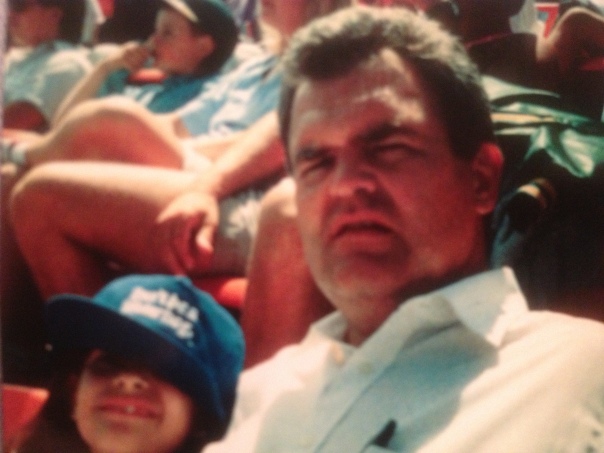April is a hard month for me. I can say this now because it’s May and because May is almost over, meaning that I’m moving farther and farther away from April. If you had asked me in April, I would have pretended that things were fine and that I was managing well. What really happened in April was this: I entered into a period of sadness, fueled by the 10-year anniversary of my Dad’s death. I stopped waking up early and meditating. I stopped writing. I couldn’t even pick up my journal to sketch out a few sentences on how I was feeling. I didn’t make any cookies or scones. I stopped calling my Mom and sisters. I avoided social gatherings and became a social recluse.
Ten years later, the power of grief still surprises me. Grief at this stage is much different than it was five years ago, much less eight or nine years ago. It’s less acute, having been tempered by time and experience. In the ten years since my Dad’s death, I’ve lost other loved ones, both friends and family. I’ve had more ups and downs in my own life. I’ve grown-up, at least a little bit, and learned more about what it means to be myself.
What I increasingly struggle with every April, however, is the sense of permanence. With every day that slips away, I lose more and more of him. It’s becoming harder to remember what his face looked like when he laughed. I begin to forget the exact timber and tone of his voice. I can recall some of his infamous puns, but for every one that I recall, I forget two others. I’ve begun forgetting some of the happiest memories I have of him, or at least they are becoming more blurry in my recall. At the same time, some of the unhappy memories I have, like the times we would get into arguments on the basketball court, have also faded into the recesses of my brain. It’s hard enough losing someone you love once. What you don’t realize, however, is that you lose them over and over again as the years go by.
The act of forgetting is necessary and very human. After all, how would we be able to forgive each other and move past difficult life events were it not for the powerful drug that is forgetfulness? Yet, every year I find myself lamenting this necessary step, wishing it could be otherwise. What I’m really wishing, though, is that he could come back and that everything would be as it once was. But the strangest part is, once I admit to this, I realize that I don’t actually want it.
Yes, I wish he could be here to see my life and share in the happiness, but I would never take back the past ten years. The past ten years, and all that has come with them, have brought me to this place. Sadness, grief, laughter, growth, happiness. I’ve moved away from home, found my life partner, read good books, walked and biked hundreds of miles, and have found my own place in this beautiful and terrifying world. And I realize that none of this, absolutely none of this, would have unfolded in the same way if things had been different ten years ago.
I can admit to all of this because it’s the last day of May, and because once April’s sadness gently rolls away, I am reminded of how blessed my life has been. I’m so grateful for my Dad and for the years we had together. I’m equally grateful, however, for the life I have now. Forgetting really is the hardest part, but it’s also a gift in disguise because it allows me to embrace my new life without living each day in constant grief and regret.

